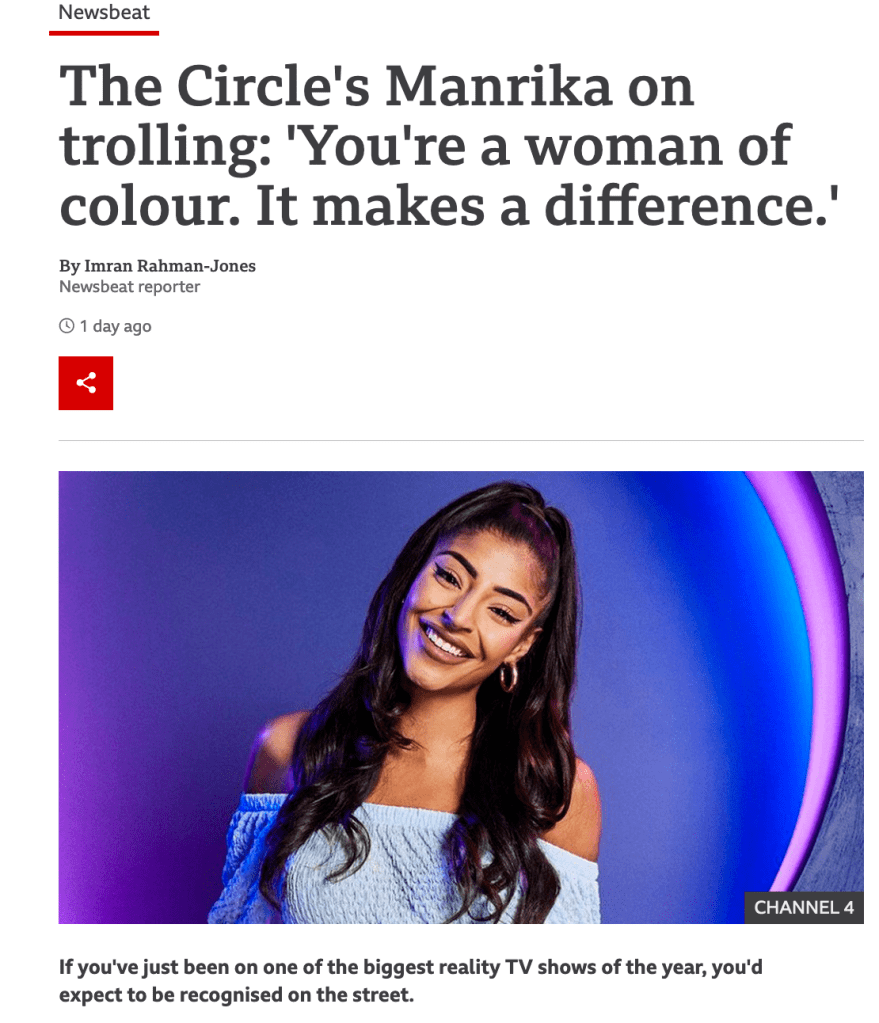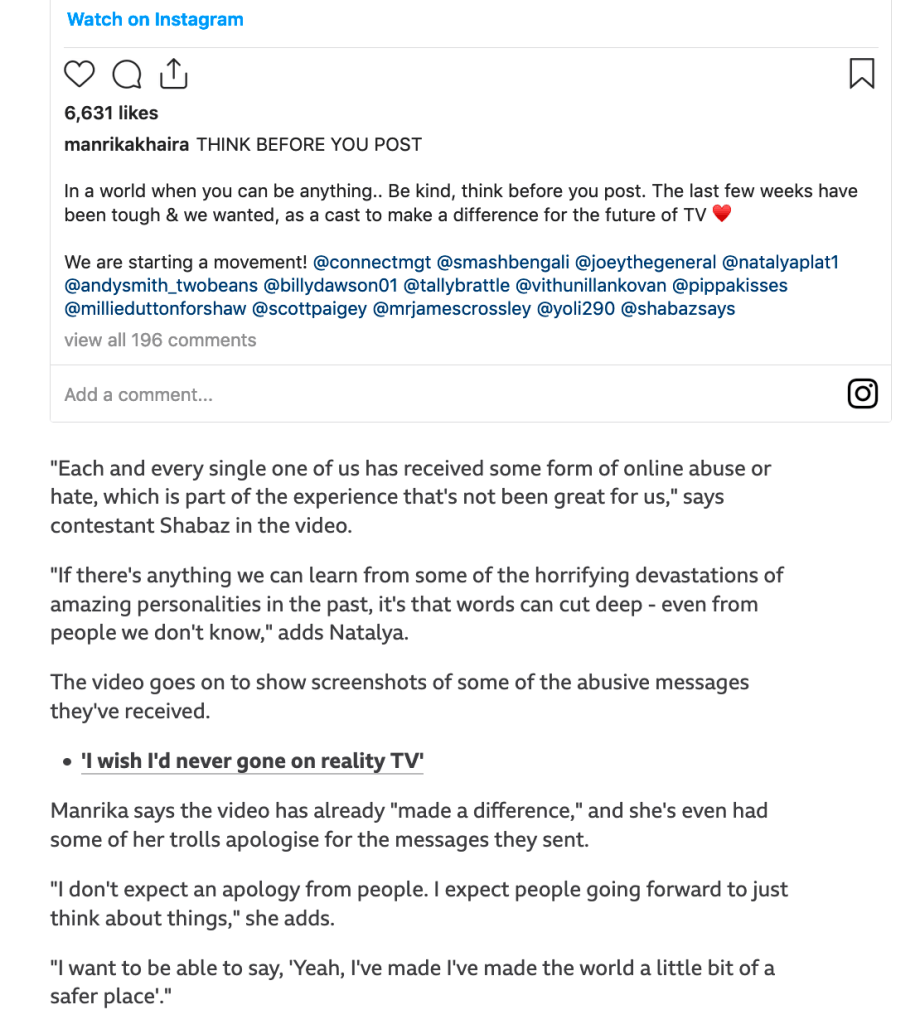A new campaign has begun – #ThinkB4UPost
It is a thoughtful idea put forward by Shabaz and some of the cast members of Circle 3. I am very happy to endorse, participate in and champion the positive and valuable message it sends- specifically, that anonymous nastiness on the internet is shameful and worrying and needs to end. We all have a role to play in calling for better behaviour.
I think, incidentally, that this campaign, and others like it, needs to be buttressed by legislation that ensures the culture of internet anonymity, which permits both trolling and cloning, becomes unacceptable. This, I am afraid is a much bigger job, and needs to be addressed globally. But #ThinkB4UPost is a very valued step in the right direction and ideas like this need to be encouraged and promoted with enthusiasm.
I was therefore pleased to see the BBC taking up the story.
The BBC posted a piece about the Campaign and particularly focused on hate-mail that Manrika received during the show. The article, however, proves to be a curious piece that mixes what is a very reasonable campaign with some disturbing hints and I thought it might be worth pointing these out.







The two issues that worry me are, firstly, the idea that this campaign alone will be sufficient to turn round the problem at the heart of Reality TV and secondly, that Manrika, like some other past cast members (who must have participated in a quite different production to the one I knew), talks about the 24 hour access that has been given to psychiatric care.
I am afraid this level of care was certainly not the experience I had and was not an experience I know many others from both my series (2) and the earlier series 1 had received, even if this might have been what was intended. Indeed, I can cite 2 people who attempted to access care, and they were kept waiting for up to 10 days without a response because the care team that we had been assigned to did not recognise that we were part of their remit, so I am frankly flabberghasted by some of these over optimistic statements.
There is a big difference between what is intended and what was delivered.
When I brought this issue about a serious failure in the duty of care to the attention of production a year ago, I was assured that the question of aftercare would be addressed and would be put in place. My concerns, and the specific cases I cited, were acknowledged and accepted by senior execs in production. I am, therefore, hopeful and I assume that better care is now available. However, the article that has been printed by the BBC gives a very strange impression when it juxtaposes Manrika’s positive comments about aftercare with mine, and provides no explanation. That may be the result of over-hasty editing, but it suggests that Manrika and I refer to the same experience- we do not.
The passage of time can make things better and companies can learn from their failings. I note, for example, that the production company is today no longer relying on the company they used last year to provide psychological support. That is some progress!
I am, therefore, delighted that Manrika’s experience is more positive than the one I witnessed and experienced, and, equally, I salute the efforts of the current cast to call for a kinder internet, but that is not enough in itself. We need to ensure that those who participate in these shows can leave them having had a fully positive experience, that they receive independent professional and responsible support that assists production and enables production to get on with the job it does best. The people who participate in these shows should have such a positive experience that they act as ambassadors for the show- instead, there is a host of people carefully measuring their language against their contractual obligations.
I would hate to think the #ThinkB4Upost campaign ends up in the same bag as the Caroline Flack #BeKind campaign, both well-meaning and positive messages but open to being appropriated by TV Companies that might be seen as complicit in nastiness. These campaigns should not become the sticking plaster for the industry. they should not become another version of the OFCOM “rules”. These campaigns are thoroughly worthy and they help us to remember basic good nature but they cannot eclipse the need for wholesale change.
And also, when I look at what reality TV has become, I would not like people to think that the real problem is the audience!
It is barely a week since the death of Nikki Grahame: she was just one in a long list of casualties that have grown from the Reality TV phenomenon. It is perhaps glib to say, as journalists have done, that she could not deal with fame- she was vulnerable from the day she was cast and I think the show and the industry should take greater responsibility for the continued health and wellbeing of those they use. I can think of no other form of entertainment that is so measured in death.
The Secretary of state needs to reconvene the committee that began taking evidence after the Jeremy Kyle show, it needs to recognise that the current OFCOM “regulations” are neither new nor efficacious and at the same time, it needs to encourage organisations like EQUITY and established theatrical agencies to provide the independent support that is so evidently lacking.



